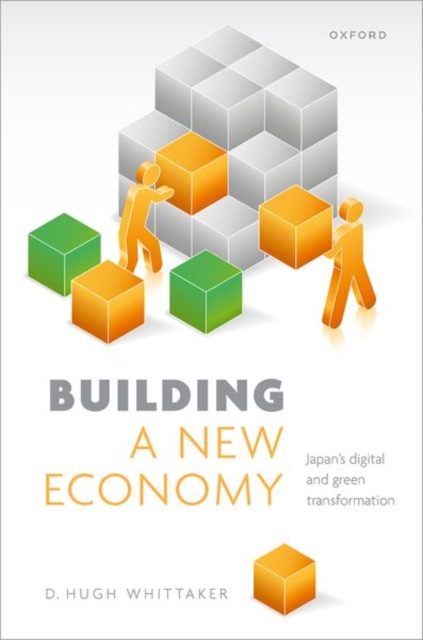
Building a New Economy : Japan's Digital and Green Transformation Hardback
by D. Hugh (Professor in the Economy and Business of Japan, Professor in the Economy and Bus Whittaker
Hardback
Description
Japan is attempting to build a new economy. It goes by various names, such as 'Society 5.0', 'sustainable capitalism', and 'new form of capitalism'.
It is to be constructed through digital and green transformation, and a 'virtuous cycle of growth and distribution'.
The effort faces strong headwinds, including demographic decline and ageing, Japan's external energy dependence and geopolitical turbulence, and the legacies of Japan's 'lost decades'.
Nonetheless, since 2015 a path has been identified that steers between Big Tech market oligopoly on the one hand, and an overbearing state on the other.
For others facing the same post-neoliberal, sustainability transformation challenges as Japan, this public-private coordinated building effort is noteworthy. Building a New Economy uses an evolutionary conceptual framework of states-and-markets, organizations-and-technology, and institutional change.
It shows how the institutional coherence of the manufacturing-centred postwar model broke down, and was followed by the ideological and institutional dissonance of the 'lost decades'.
However, new institutional building blocks have been identified and (partially) assembled which could lead Japan towards a new model which is more open and adaptive.
These blocks include a reconfigured developmental state, and new forms of coordination with and within the corporate sector, at times encompassing civil society. Importantly, for a country that has favoured social stability over creative destruction, and has struggled with change, the path forward may require 'controlled dis-equilibrium' of institutions rather than tight coherence. 'Society 5.0' and the 'new form of capitalism' claim to be people-centred; making them so will be the crucial challenge.
Information
-
Out of stock
- Format:Hardback
- Pages:272 pages
- Publisher:Oxford University Press
- Publication Date:22/02/2024
- Category:
- ISBN:9780198893394
Information
-
Out of stock
- Format:Hardback
- Pages:272 pages
- Publisher:Oxford University Press
- Publication Date:22/02/2024
- Category:
- ISBN:9780198893394






